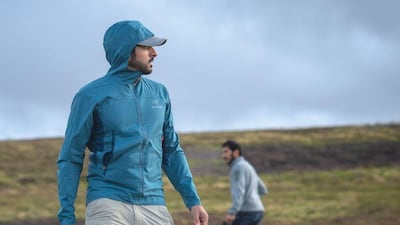It’s common knowledge that Sheikh Hamdan bin Mohammed has a great love for animals. He's also no stranger to a charitable cause.
So when Dubai's Jumeirah Group set about releasing 65 turtles into the wild to mark World Sea Turtle Day, it's easy to see why the Crown Prince of Dubai was eager to lend a hand.
In a video posted to Instagram on Tuesday, Sheikh Hamdan documented his part in helping release the turtles out at sea.
The project, held to mark World Sea Turtle Day on Tuesday, June 16, was organised by Jumeirah's Dubai Turtle Rehabilitation Project. The team released 45 hawksbill turtles, as well as an additional 20 hatchlings from the Emirates Marine Environmental Group’s Jebel Ali Reserve.
Each of the 45 rehabilitated turtles have spent the last few months being treated for various ailments including plastic ingestion, and injuries that required surgery.
The turtles released included a hatchling that washed up on World Sea Turtle Day last year, weighing only 11 grams. It has since grown, and her weight has since increased tenfold, according to Gerhard Beukes, director of aquarium operations and animal husbandry at Dubai Turtle Rehabilitation Project.
“The rehabilitation process starts with critical care at the facilities at Burj Al Arab, then progresses to the sea-fed turtle rehabilitation lagoon, where the turtles acclimatise to ambient conditions, and build up fitness levels prior to release back into the wild”, he says.
Hawksbills are important for coral reefs, as they forage on and keep sponges in check. The past few decades have had a rapid decline in turtle numbers, and it is thought that there are less than 8,000 adults nesting females globally, a reduction of 80 per cent in the last century.
Their rehabilitation is in line with the three-year National Plan of Action for the Conservation of Marine Turtles in the UAE, supported by the Dubai Turtle Rehabilitations Project. Launched by the Ministry of Climate Change and Environment, the plan aims at expediting laws to protect turtles.
The Dubai Turtle Rehabilitation Project has now returned more than 1,900 turtles to the Arabian Gulf from across the UAE, since its inception in 2004. The main species tended to at the facility are hawksbill and green turtles, with occasional loggerhead and olive ridley turtles brought in.






































